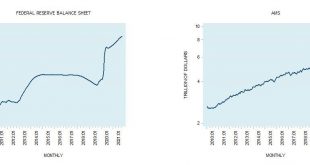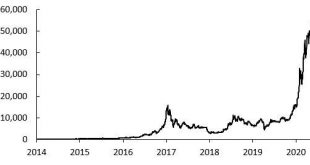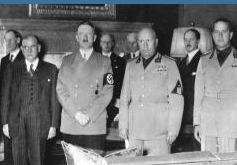I have always had a bad attitude toward official secrets regardless of who is keeping them. That prejudice and John Kenneth Galbraith are to blame for an unauthorized withdrawal I made from the World Bank. When I lived in Boston in the late 1970s, I paid $25 to attend a series of lectures by Galbraith on foreign aid and other topics. The louder Galbraith praised foreign aid, the warier I became. His hokum spurred my reading and led me to recognize that foreign aid is...
Read More »Using the Welfare State to Get Compliance on Vaccine Mandates
A Democratic state lawmaker in Illinois has introduced legislation requiring unvaccinated residents to pay out-of-pocket for healthcare services. It’s all part of an effort to come up with new and creative ways to punish people who refuse to get the covid jab. WBBM Radio in Chicago reports: [Jonathan] Carroll’s legislation would amend the state’s insurance code so that “a person who is eligible to receive a COVID-19 vaccine and chooses not to be vaccinated shall pay...
Read More »How Market Freedom Combats Economic Inequality
For many, income inequality is a disease ravaging the fabric of capitalist societies. Therefore, curing this ailment, according to progressives, necessitates an injection of welfare benefits and higher taxes on the wealthy. Guided by a zero-sum outlook, critics believe that the success of the affluent is gained at the expense of the poor. To remind voters that he takes income inequality seriously, during his presidential campaign, Joe Biden expressed concern that the...
Read More »Money Supply Growth Is Slowing—That Points to a Slowing Economy
According to the popular narrative, the role of the central bank is to navigate the economy along the so-called path of economic stability. By this way of thinking if various shocks cause the economy to deviate from this path, then it is the role of central bank policy makers to offset these shocks. This is done by means of suitable monetary policies. In line with this way of thinking to counter the shocks from covid-19, the US central bank, the Federal Reserve...
Read More »Natural and Neutral Rates of Interest in Theory and Policy Formulation
Interest has a title role in many pre-Keynesian writings as it does in Keynes’s own General Theory of Employment, Interest, and Money (1936). Eugen Böhm-Bawerk’s Capital and Interest (1889), Knut Wicksell’s Interest and Prices (1898), and Gustav Cassel’s The Nature and Necessity of Interest (1903) readily come to mind. The essays in F.A. Hayek’s Profits, Interest, and Investment (1939), which both predate and postdate Keynes’s book, focus on the critical role that...
Read More »Bitcoin Isn’t Any More Dangerous than the Euro
Major representatives of the European Central Bank—including ECB president Christine Lagarde—continue to warn against bitcoin. In a recent article, addressed to the inflation-adverse German audience, the ECB representative Klaus Masuch together with the former ECB chief economist Otmar Issing has stressed five risks of bitcoin: a lack of intrinsic value, risks to financial market stability, the use in financing organized crime, high energy consumption, and the...
Read More »Planned Chaos
The characteristic mark of this age of dictators, wars, and revolutions is its anti-capitalistic bias. Most governments and political parties are eager to restrict the sphere of private initiative and free enterprise. It is an almost unchallenged dogma that capitalism is done for and that the coming of all-around regimentation of economic activities is both inescapable and highly desirable. Nonetheless capitalism is still very vigorous in the Western Hemisphere....
Read More »Africa’s Long History of Trade and Markets
Market reforms in Africa can be thwarted because of propaganda asserting that markets are a Western import. Notwithstanding the currency of this belief, it is patently absurd. Markets flourished in Africa prior to colonialism, and wherever they are repressed, the result is social immiseration, as economist William Hutt points out in his pathbreaking study, The Economics of the Colour Bar. Merchants in precolonial Africa organized large-scale trading networks that...
Read More »How Governments Seized Control of Money
In discussions surrounding of the world’s monetary systems today there is usually one thing almost everyone can agree on: that money should be controlled by the organizations we call “states” or “sovereign states.” Nowadays when we say “the US dollar” we mean the currency issued by the US government. When we say “the British pound” we mean the money issued by the regime of the United Kingdom. This assumed need to have state-issued money has not always been the...
Read More »The Bank of Canada’s Failed Mission to “Preserve the Value of Money”
In Canada, inflation hit 4.7 percent in October, and is expected to go even higher. According to a recent survey, 46 percent of Canadians are struggling to feed their families because of the rising cost of living. Perhaps they are also struggling to understand the logic of the Bank of Canada’s (BOC) mission statement: “We work to preserve the value of money by keeping inflation low and stable.” That’s the BOC’s objective, but it’s impossible to achieve. Preserve...
Read More » Swiss Economicblogs.org
Swiss Economicblogs.org










